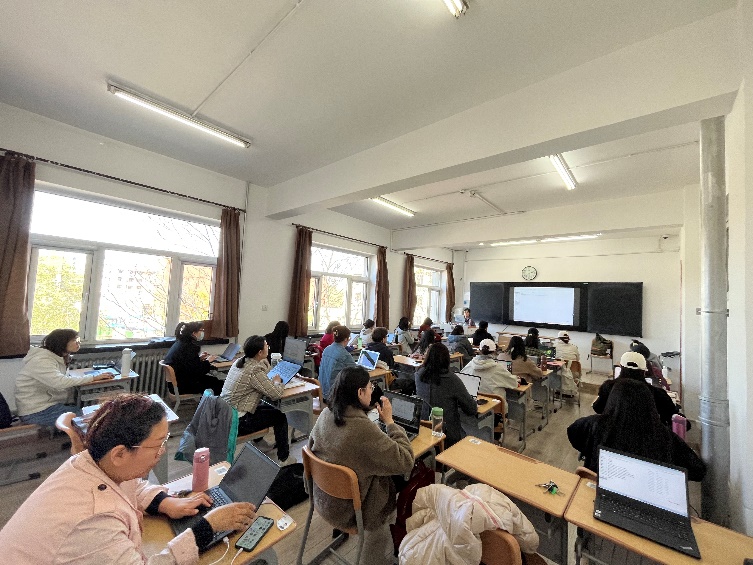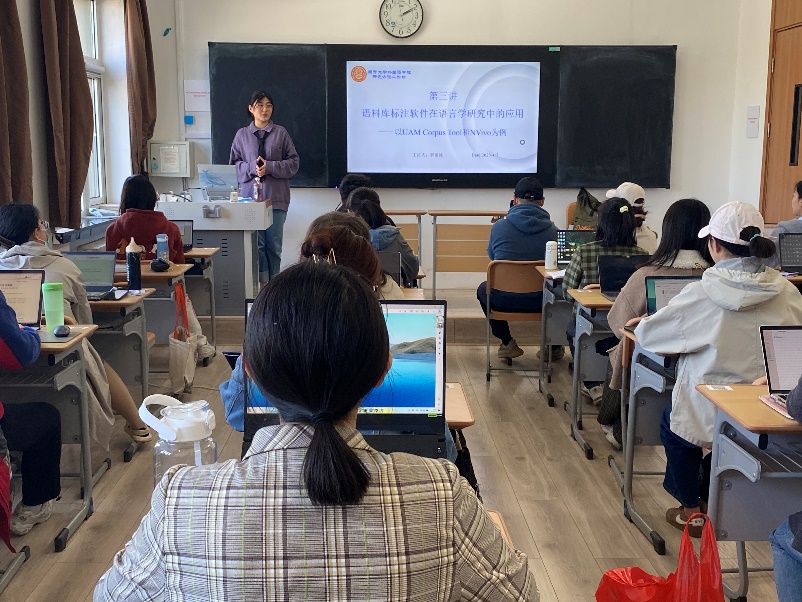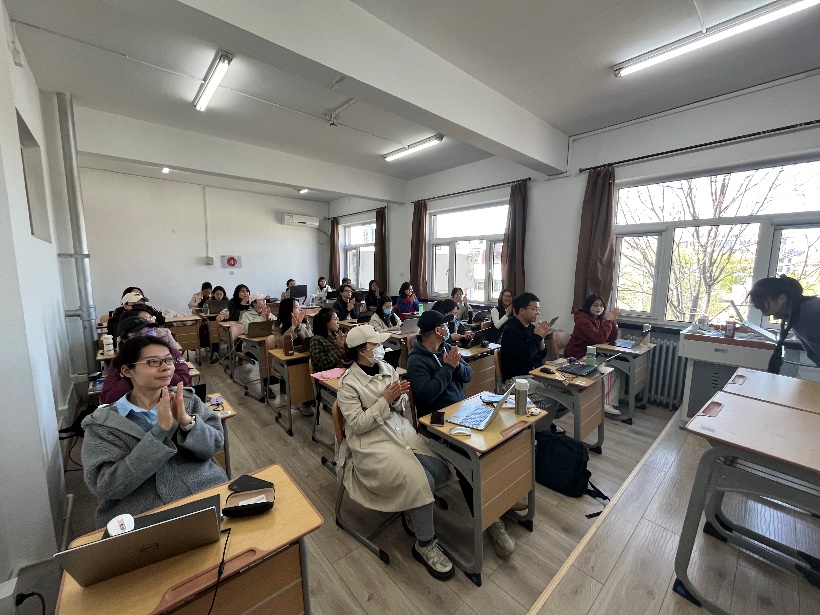In order to implement the spirit of the 20th Party Congress, promote the special action of academic integrity of Nankai University, cultivate young professionals, improve the research level of teachers and students, and create an atmosphere of innovation, the College of Foreign Languages held a training session on academic integrity and the first workshop on research methods in the spring semester in the afternoon of April 7. The event was hosted by Professor Li Min, Vice Dean of the College of Foreign Languages, and nearly 10 faculty members from the Departments of Japanese, French, Spanish, Portuguese, and Public Foreign Language Teaching, as well as more than 20 doctoral, master’s and undergraduate students, attended the event.

At the beginning of the activity, Professor Li Min read out the “Nankai University Academic Integrity Special Action Plan”. He emphasized that scientific research should strictly abide by the relevant national laws and regulations, social ethics and academic norms, care for academic reputation and oppose to quick success and near profit. He called on everyone to promote the spirit of science and collectivism, mutual respect, active cooperation, joint research, and actively create a good academic atmosphere of unity and innovation, cooperation and democracy. He also shared the common academic misconduct with examples.

Afterwards, Luo Yushu, a master student of the Class of 2021, gave a presentation entitled “The Application of Corpus Annotation Software in Linguistics Research: UAM Corpus Tool and NVivo as Examples”. Luo Yushu first introduced the discipline of corpus linguistics, briefly explained the practicality and basic rules of corpus annotation, and suggested the necessity of qualitative annotation software. After that, Luo Yushu assisted the participants to complete the installation of two common corpus annotation software, UAM Corpus Tool and NVivo. The functions and operation steps of the software were introduced in detail from establishing annotation items, building annotation hierarchies, creating case nodes, and cross-analysis by matrix. She also discussed how to link NVivo output data with SPSS and verify the significance of annotated data by case weighting and chi-square test, which was well received by the participants.

Finally, Professor Li Min made a concluding speech. He pointed out that in the context of the mature automatic annotation technology, it is important for linguistic research to combine quantitative and qualitative research with the help of qualitative annotation software. The two types of qualitative annotation software introduced by Luo Yushu today will not only further expand academic horizons and deepen research methods, but also have great significance for thesis writing and further study, and are of great reference value for various research projects at all levels.

It is reported that this seminar is the first research methods workshop event in the spring semester of the 2022-2023 academic year. The workshop will be held once every two weeks. This semester will also discuss the application of Python, E-prime, Praat, Meta-analysis and other methods in linguistic research. All faculty and students are welcome to attend.



